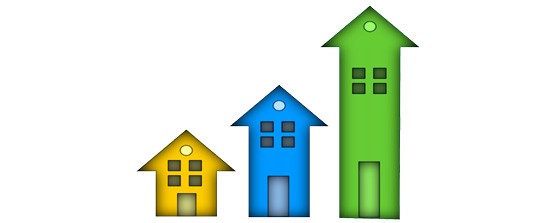Blog


Tuesday
23
APRIL
2019
Winnipeg Mortgage Brokers what you need to know about the new first-time home buyer incentive

There has been a lot of confusion and misinformation surrounding the recent announcement of the new home buying initiatives in the 2019 federal budget. While the final details won't be available until the fall, we would like to clear up some of the misconceptions of what the programs will and will not do from what we know at this time:
The First-Time Home Buyer Incentive (FTHBI)
- A new initiative that will see the Canada Mortgage and Housing Corporation (CMHC) provide 5% of your down payment for the purchase of existing homes, or 10% for the purchase of a new build. This means CMHC can match the down payment (as outlined above), but homebuyers are still required to come up with the minimum before CMHC will equity share.
- The mortgage must be default insured
- Your income must be less than $120,000
- No monthly payments are required, and this amount can be paid back at any time, or upon the sale of the house.
- The insured mortgage plus incentive cannot be more than four times the participants' household income. For example, if a borrower wants to buy a home with a purchase price of $300,000 and has 5 per cent down, which is $15,000, the CMHC shared equity would also be $15,000. The purchase price ($300,000) minus the CMHC equity ($15,000) equals $285,000. This amount cannot be more than 4 times the household income. Let's say the buyers' household income is $80,000. Four times this number is $320,000, which is more than the above mortgage amount (mortgage plus incentive) of $285,000, so it qualifies. In comparison, if the household income is $70,000, four times this is $280,000, which is less than the mortgage amount and would therefore not qualify.
- Effective as of September 2019
Potential Pitfalls of the First-Time Home Buyer Incentive
- More analysis is still needed given the lack of information provided with the announcement in order to clearly understand if this plan will actually benefit homebuyers in the long run
- Delayed implementation could result in a depressed market as house hunters await further details before participating in the program
- There is no information on whether or not there will be interest charged on the equity sharing
- There may be increased legal fees if additional registrations are required
- There is no information currently available regarding the shared risk or gain if the home sells for less or more than what was originally paid
- It sounds like CMHC will continue to charge CMHC fees based on the amount the APPLICANT is putting down with their own money. For example, if the applicant puts 5% down and CMHC puts 5% into the down payment the client will still be paying CMHC fees based on 5% down = 4% CMHC fees, 10% = 3.1% CMHC fees, 15% = 2.8% CMHC fees.
- CMHC may put a lien on title in first position to assure repayment of equity shared to the applicants. If they do this it will be interesting to see how lenders will feel about this as currently "A" lenders do not go in second position. Also, if an applicant puts 5% down, the CMHS fee is 4%, so CMHC would have a charge on title for 5% for a property that only has 1% equity in it.
- Currently, households can usually qualify for a maximum purchase price around 4.7 times their income. With the FTHBI, buyers are limited to the mortgage plus government assistance being a maximum of four times their income. Homebuyers are still required to come up with the 5% minimum down payment and it doesn't decrease the funds required at closing.
Increasing the RRSP Home Buyers' withdrawal limit to $35,000 from $25,000
- Permits two first-time buyers in the same household to combine withdrawals for up to $70,000 down payment
- Available for first-time homebuyers. But as of 2020, this program is eligible for those who split from their spouse or common-law partner, even if they are not first-time buyers*
- These fund must be repaid within 15 years, or the withdrawal will have tax implications
*RRSP withdrawal for relationship breakdown
- This outlines that post 2019; the First Time Buyers' RRSP incentive program will be available to each individual living separate and apart as a result of a relationship breakdown. Each individual will be able to access $35,000 under this program.
Potential Pitfalls of the change to the RRSP Home Buyers' withdrawal limit
- Currently, this program is used by less than 10% of the time for a down payment, so an increase in the limit is not necessarily a "game changer"
Until more information is made available, it is still unclear if these newly announced initiatives will actually end up benefiting first-time home buyers. They could, in fact, prove to be ineffective in helping them enter the housing market. What is clear now, however, is that you need to turn to a professional who can explain the pros and cons of the information that has been made public so far. This is exactly why mortgage brokers exist.
Source: Steve Hubel - Canadian Mortgage Trends